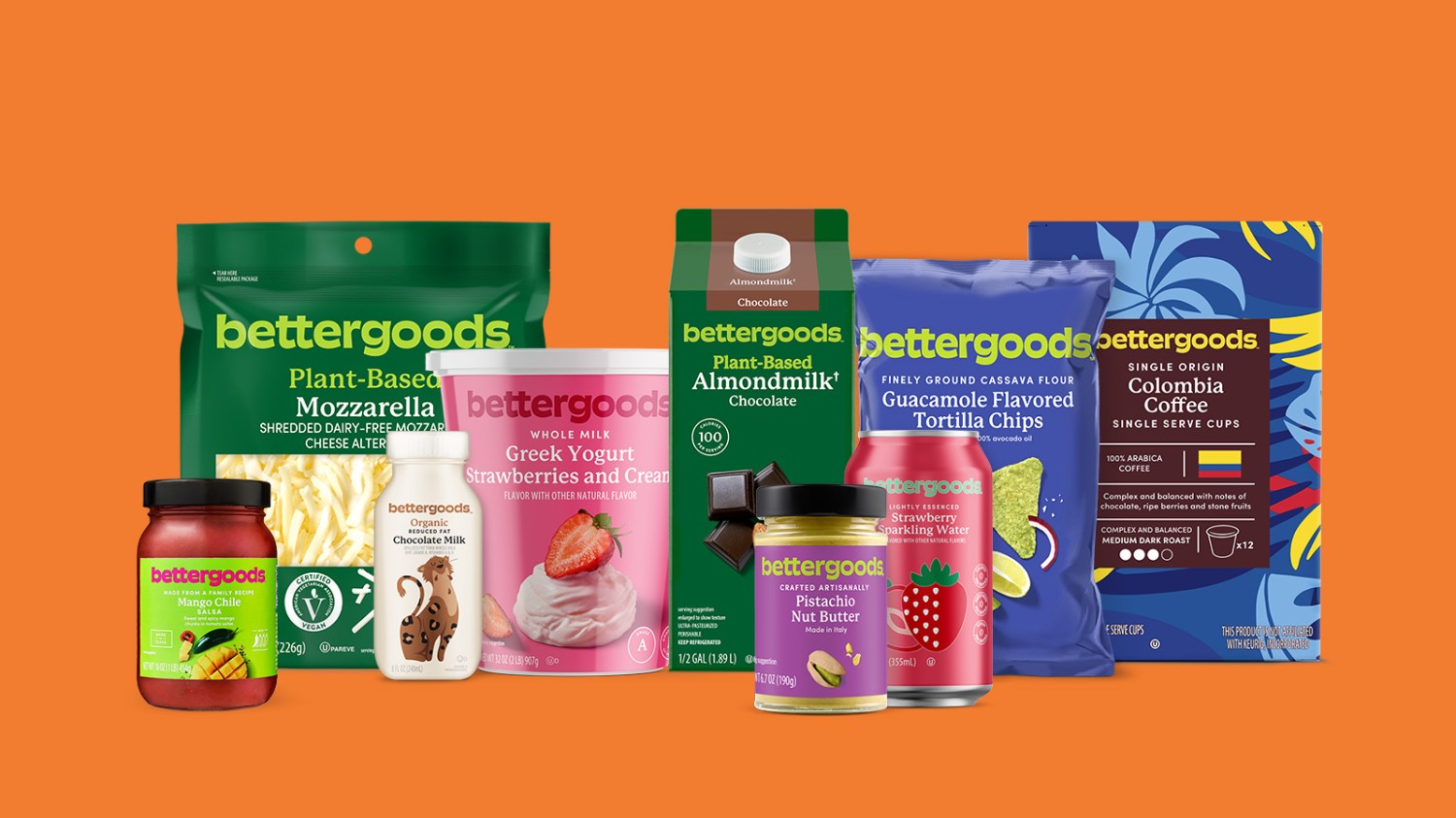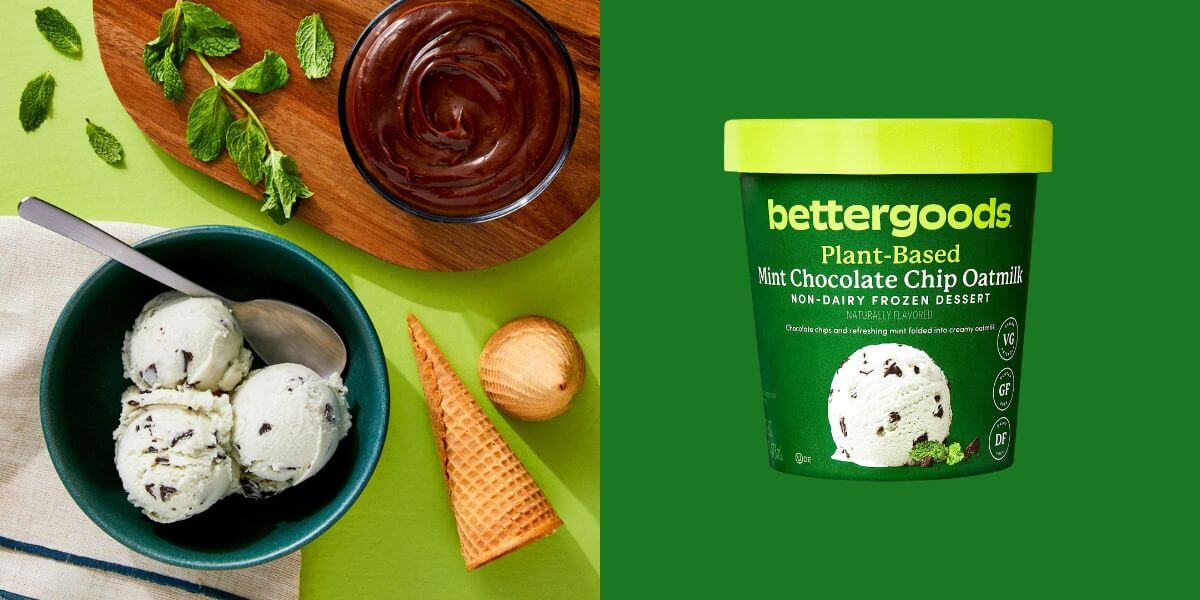Walmart's Bettergoods: Explore The New "Affordable Gourmet" Food!
Is it possible to redefine the very essence of grocery shopping, making gourmet experiences accessible without breaking the bank? Walmart, the retail behemoth, believes it has cracked the code, and the early buzz surrounding its new private label, "bettergoods," suggests they might be onto something big.
The introduction of "bettergoods" on April 30th marked a significant event, the first time in two decades that Walmart has unveiled a brand of this magnitude. This isn't just another line of products; it's a strategic move to capture a share of the growing market for "affordable gourmet" food. The company is betting that consumers are seeking more from private label brands, a trend thats been gaining momentum. They are increasingly looking for quality products that elevate their dining experiences without the premium price tag. The initial rollout features around 300 items, ranging from $2 to $15, spanning a wide array of categories.
| Key Aspects of the Bettergoods Brand Launch | |
|---|---|
| Launch Date: | April 30th, 2024 |
| Parent Company: | Walmart |
| Primary Focus: | Affordable Gourmet Food |
| Initial Product Range: | Approximately 300 items |
| Price Range: | $2 to $15 |
| Product Categories: | Frozen, dairy, snacks, beverages, pasta, soups, coffee, chocolate, etc. |
| Strategic Goal: | To cater to consumer demand for quality and affordable private label brands. |
The "bettergoods" range is designed to offer a curated selection of unique grocery products. This includes a wide range of options, from shelf-stable soups to frozen appetizers, each crafted to provide a distinctive culinary experience. Early reviews suggest the brand is targeting a niche similar to Trader Joe's, focusing on specialty foods that aren't readily available at other grocery stores. The "bettergoods" strategy highlights Walmart's commitment to meeting evolving customer preferences. This includes the desire for quality products combined with affordability.
A prime example of the "bettergoods" line includes the "slow cooked southwest roasted tomato black bean soup". Described on the label as a shelf-stable option, offering a bold combination of savory tomatoes, creamy textures, and a subtle hint of parmesan. The "tomato three cheese bisque" is also presented as an ideal companion for sandwiches, crackers, and bread, highlighting the brand's versatility. Another exciting addition is the "creamy hatch chile and corn chowder," which promises a unique and comforting taste profile. With its authentic taste and flavorful, creamy consistency. The chowder is made with sweet corn, hatch chile, potatoes, and carrots, offering a blend of savory and sweet flavors.
The excitement surrounding "bettergoods" is palpable. Shoppers are actively searching for the new products, eager to explore the offerings. The frozen food section appears to have a rising star with items such as the "Belgian style duchess potatoes". According to the social media reviews, the "beef bulgogi, apple cinnamon, and chicken curry empanada" varieties are receiving glowing reviews, demonstrating the brand's diverse offerings and potential appeal. The variety offered aims to cater to different tastes and preferences, making the brand accessible to a wide audience.
Walmart's investment in "bettergoods" reflects a broader trend in the retail industry. It involves the increasing importance of private labels (or "house brands") as a key component of success. These labels allow retailers to control product quality and pricing. Furthermore, they help cultivate customer loyalty. Walmart's move mirrors strategies employed by other major retailers like Target, which launched "Good & Gather" in 2019.
The USDA Organic standards are a significant aspect of the food industry. USDA-certified organic products are produced using farming practices that maintain and improve soil and water quality. They minimize the use of synthetic materials, conserve biodiversity, and avoid genetic engineering. The standards also ensure that the products are traced from farm to store. The stringent requirements are enforced by experts, and shaped by public input. The implementation of these standards highlights the commitment to sustainable and environmentally friendly food production methods.
Beyond the new brand, Walmart continues to offer a range of other soup products. The "Progresso split pea with ham soup," "Progresso chicken rice with vegetables canned soup," and "Rao's made for home chicken gnocchi soup" provide established options. These traditional canned soups offer familiar flavors and convenience. "Progresso broccoli cheese canned soup" provides a gluten-free option. These existing offerings highlight the range of choices available to customers.
The launch of "bettergoods" also underscores the growing trend towards contactless delivery and convenient shopping experiences. With many retail services that offer free first delivery or pickup orders, it is easier than ever for customers to access products. The emphasis on affordability, convenience, and variety suggests that Walmart is well-positioned to capture a significant share of the market. As the brand expands and new items become available, the impact of "bettergoods" on the retail landscape will become even clearer.
The launch of the "bettergoods" brand is a sign that Walmart is changing. The brand is designed to meet the expectations of today's shoppers. Walmart's goal is to provide affordable, high-quality products that improve the shopping experience. As the brand grows, it is likely to continue to attract attention and reshape the way people think about private label grocery shopping.
As consumers explore the "bettergoods" range, they will find that Walmart is offering a diverse selection. The options span many categories. The company intends to offer 300 products. The aim is to elevate the food experience for shoppers.



